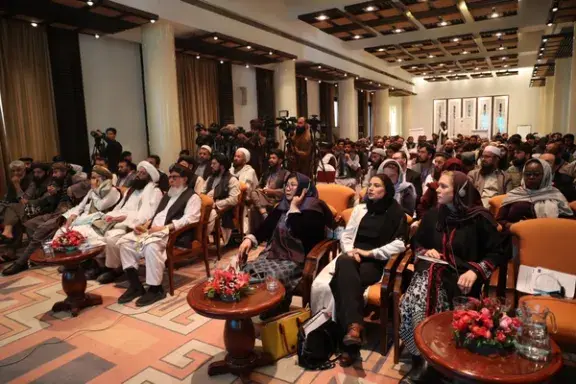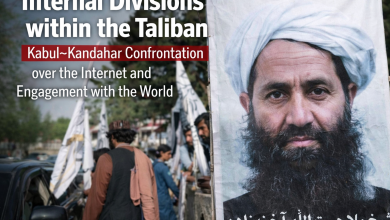The Taliban allows foreign women to participate in public meetings but denies Afghan women, which is a double standard. (Report by Ahmad Sohail Parto)
AfgNews24 Afghan News24

The Taliban allows foreign women to participate in public meetings but denies Afghan women, which is a double standard. (Report by Ahmad Sohail Parto)
While the Taliban has barred Afghan women from participating in the “public sphere,” female foreign representatives continue to attend meetings held by the group in Kabul. The head of UNAMA and some other foreign women participated in the Taliban’s meeting on the impact of climate change in Afghanistan.
The Taliban’s law of “promoting virtue and preventing vice” confines women to the four walls of their homes and describes their voices in public spaces as “awrah” (something to be hidden).
On Wednesday, the UN special representative for Afghanistan and several female foreign diplomats attended a meeting with Taliban officials in Kabul.
This meeting was focused on environmental issues, with senior Taliban officials present, alongside Ms. Otunbayeva, the head of UNAMA, female representatives from the European Union, and other international organizations.
National TV, controlled by the Taliban, broadcast images and videos of the meeting, but the section of the hall where the UN representative and other female diplomats were seated was not shown. In the report, quotes from the UN representative and female diplomats were shared, but their images were not shown due to their gender.
Taliban-controlled media has previously censored images of women.
While female representatives of international organizations participate in such meetings, the Taliban has completely excluded Afghan women from the public sphere.
The UN representative highlighted Afghanistan’s vulnerability to climate change, emphasizing, “Given the high level of vulnerability, we cannot afford to go another year without the voices of Afghans in this crucial global dialogue on climate change.”
The United Nations holds large annual meetings on climate change, where policies and strategies for tackling this global crisis are discussed. Afghanistan has been absent from these global meetings for the past three years.
Meanwhile, Mawlawi Matiul Haq Khalis, head of Afghanistan’s National Environmental Protection Agency, has called on the international community to resume 32 stalled environmental projects worth over $800 million.
Afghanistan is one of the countries severely affected by climate change, facing deadly floods and increasing drought each year. (Report by Ahmad Sohail Parto)




